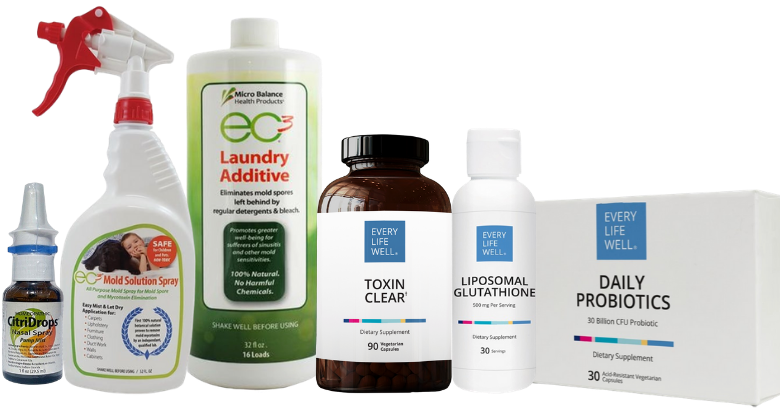A Functional Medicine Approach To Acne
If you are one of the many teens or adults that suffers from acne, you understand the toll it takes on your life. Acne not only affects the skin itself and may lead to scarring, but also affects confidence, self-esteem and well-being.
After all, our face is what we present to the world and when skin is inflamed on the outside, it leads to equal inflammatory emotional stress, anxiety and sometimes embarrassment too.
Understandably, acne is one of the main reasons that people go to see a dermatologist and desire quick and effective results. However, there might be more to the story and effective treatment beyond a harsh cream or medication.
Uncovering the root causes of acne and addressing them with effective lifestyle solutions allows for prevention.
Let’s dive into what we know about acne, from a Functional Medicine perspective.
You’ll learn more about:
- What acne is
- The conventional approach to acne management
- Hormonal and lifestyle root causes to acne
- How to bring balance back to the skin by addressing these root causes
What Is Acne?
In simple terms, acne is the clogging of pores or hair follicles in the skin.
The physiological factors that produce acne include:
1. An increase in sebum production. Sebum is the oil produced by the skin cells that is stimulated by androgenic hormones including testosterone.
2. Irregularities in skin function including desquamation or peeling of the follicles and changes in keratin production.
3. Proliferation of bacteria. Consider this a dysbiosis of the skin microbiome as bacteria colonilize the hair follicles.
4. Inflammation. Acne is considered a chronic inflammatory disease.
Acne often begins during the teenage years or onset of puberty and may persist into adulthood for some.
Studies suggest acne affects 80 to 90 percent of adolescents. Since puberty increasingly occurs in younger kids, the onset of acne is shifting younger as well.
Acne typically occurs on the face, but may also affect the chest, shoulders and back.
Conventional Treatments For Acne
Western medicine and dermatology is focused on treating the current acne lesions through topical treatments, systemic treatments or both.
Topical acne treatments include retinol and antibiotic creams.
Systemic treatments include retinoid medications, antibiotics and hormone therapies, such as the birth control pill.
Conventional treatments treat the symptoms, but don’t address the root cause, which may lead to dependence upon the medication or even cases of antibiotic resistance in the skin.
Because of the limitations to conventional treatment, more acne sufferers are turning to complementary, alternative and functional strategies. The Functional Medicine approach is to address the root causes of the acne itself in order to prevent future breakouts.
Hormonal Root Causes Of Acne
In order to uncover the root causes we need to understand what drives the process of excess sebum, inflammation and bacterial colonization as described above.
It’s no secret that hormones influence skin health. Androgens, including testosterone, stimulate sebum production.
This is why the onset of acne often coincides with puberty and why acne can flare during times of hormone fluctuation or change including pregnancy, throughout the menstrual cycle and in perimenopause and menopause.
Other hormones, besides testosterone, also play a role such as estrogen, and specifically the case of excess estrogen or estrogen dominance, correlates with acne. In addition, high levels of insulin, as seen in insulin resistance, trigger more androgen production and drives inflammation.
Diet And Lifestyle Root Causes Of Acne
While genetics may play a role for some, diet and lifestyle factors often play a more significant role. These environmental factors cause inflammation, which fuels the acne process.
Here are some of the dietary acne triggers to consider:
- Poor glycemic control. Elevated blood sugar drives inflammation and feeds unwanted bacteria in the skin.
- High omega-6 to omega-3 ratio. Omega-6 and omega-3 are types of polyunsaturated fats in the diet and they become unbalanced when the diet is high in processed foods and refined vegetable oils and low in the more anti-inflammatory omega-3 fats found in wild fish, seafood, and to a lesser extent, walnuts, hemp and flax seeds.
- Food sensitivities. When food sensitivities are present they cause an inflammatory response in the body. Dairy is the most likely food sensitivity linked to acne with gluten and eggs being other possible triggers. It is possible to be sensitive to any food so taking the time to uncover these is important.
- Nutrient deficiencies. Micronutrients including vitamin A and zinc are important for both immune system function and for skin health. Deficiencies in these nutrients might perpetuate acne. Vitamin A, as retinol or retinoic acid, is often found in pharmaceuticals to treat acne.
- Microbiome health. Diet influences the microbiome and the gut microbiome influences the skin microbiome through the gut-skin axis. When there is inflammation in the digestive system, from food sensitivities or infections, it may show up as inflammation on the skin.
In addition to these diet root causes, lifestyle also plays a key role.
- Stress. Stress may cause acne to flare or exacerbate, potentially because stress depresses immunity and causes shifts in hormonal balance. In one study of college students, the severity of acne increased during final exams.
The link between psychosocial stress and exacerbation of skin disease has given rise to the study of the brain-skin axis, which explains the connections between the nervous system, immune system and skin.
- Toxins. Many of the products designed and marketed for preserving skin health may actually do the opposite. The average woman applies hundreds of toxins to her skin daily from personal care products and cosmetics. Many of these products contain preservatives, chemicals and endocrine disruptors, toxins that alter hormone function and increase inflammation.
Functional Medicine Approaches For Acne
Once you identify your personal root causes, it is easy to see that many of the factors are modifiable. It may take some time for skin healing. These tips may not be a quick symptom fix; instead you’ll have a long-term solution.
Root cause approaches for improving acne and skin health:
1. Get your hormones tested. A comprehensive look at hormones using the DUTCH test is an easy way to take a look at androgens, estrogens, and adrenal hormones. Work with a Functional Medicine provider to bring hormones back into balance. Getting back to basics is important here. This means getting enough sleep, managing stress and moving your body.
2. Follow a Paleo diet. The Every Life Well Paleo Protocol is an anti-inflammatory and nutrient-dense eating plan designed to meet your nutrient needs, balance blood sugar, optimize omegas and support microbiome health. Consider this a starting point for further personalization.
3. Ditch dairy. Implement a dairy-free diet for at least eight weeks meticulously, even eliminating butter and ghee, while observing for changes in your skin. When skin is at a clear baseline, you can try eating it again while observing for acne and other symptoms. This type of elimination approach helps to provide clarity about the food triggers to certain symptoms you experience.
4. Support the microbiome. A stool test such as the GI MAP may be helpful for uncovering dysbiosis (an imbalance in gut microorganisms) or any infections such as parasites, viruses, yeast or bacteria. Rebalancing and rebuilding the microbiome may translate to better skin. In fact, taking probiotics, alone or in conjunction with other therapies, has been found helpful for mild to moderate acne.
5. Clean up your skin care. Toxins enter the body through the skin so it only makes sense to apply the cleanest products on your skin. The Environmental Working Group’s Skin Deep Database is a great resource for finding safe and clean products that fit your needs.
A pimple at any age is no fun, but when it isn’t a single blemish and a persistent problem, it may be the body’s way of signaling a deeper issue.
Every symptom is a powerful message from the body asking for curiosity, understanding and healing. When we simply mask the symptom with a cream or a medication we miss the opportunity to understand what the body needs.
For example, when we take hormonal contraceptives for acne, we may put the acne out of sight and mind, but the deeper imbalances persist and may lead to other health issues as time goes on.
With acne, the root causes are often not on the surface of the skin, but require peeling back the layers to see what is going on in the digestive system, with hormones and immunity and the connections between them all.
The goal of Functional Medicine is to address the foundation to improve symptoms, but to also prevent disease and promote optimal wellness. And sometimes the journey starts with the skin.
References
- https://pubmed.ncbi.nlm.nih.gov/21880356/
- https://www.ncbi.nlm.nih.gov/pmc/articles/PMC6273829/
- https://pubmed.ncbi.nlm.nih.gov/29464224/
- https://pubmed.ncbi.nlm.nih.gov/32748305/
- https://jamanetwork.com/journals/jamadermatology/fullarticle/479409
- https://pubmed.ncbi.nlm.nih.gov/25808947/
- https://pubmed.ncbi.nlm.nih.gov/32266790/













